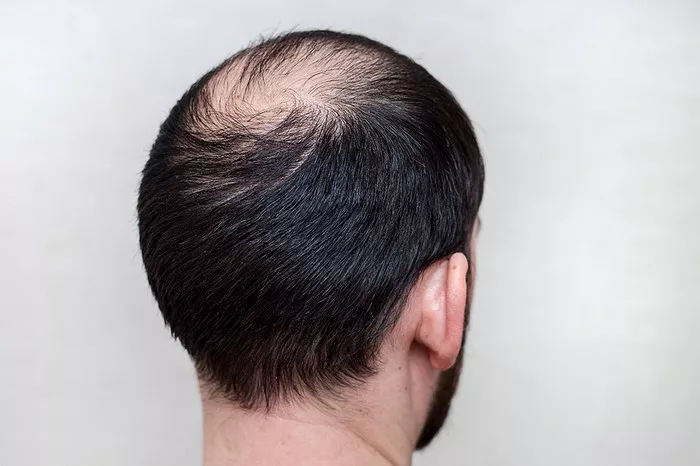The intricate relationship between stress and health has been the subject of extensive research. One intriguing aspect that often captures attention is the potential link between long-term stress and permanent hair loss. This article delves into the scientific understanding of this connection, exploring the mechanisms, evidence, and implications of stress-induced hair loss.
The Physiology of Hair Growth
Hair Growth Cycle: Understanding the natural hair growth cycle is essential. Hair undergoes phases of growth, transition, and rest, with individual hairs having varying timelines within this cycle.
Anagen Phase and Stress: Chronic stress can disrupt the normal progression of the hair growth cycle by pushing more hair follicles into the resting (telogen) phase, hindering the regrowth process.
Hormonal Impact: Stress triggers the release of stress hormones like cortisol, which, in excess, can disturb the balance of other hormones crucial for maintaining healthy hair growth.
Stress-Induced Hair Loss: The Mechanisms
Telogen Effluvium: Prolonged stress can induce telogen effluvium, a condition where a significant number of hair follicles enter the telogen phase simultaneously, leading to increased shedding.
Hormonal Changes: Elevated cortisol levels and hormonal imbalances can disrupt the delicate equilibrium required for proper hair growth, potentially leading to thinning and eventual loss.
Inflammation and Microscopic Changes: Stress-induced inflammation can impact hair follicles at a microscopic level, influencing their function and the overall health of the scalp.
Evidence from Scientific Studies
Clinical Observations: Numerous studies have documented the correlation between chronic stress and hair loss, emphasizing the importance of stress management in preventing and treating hair loss.
Biological Markers: Biomarkers associated with stress, such as cortisol levels, have been found to correlate with the severity of hair loss in individuals experiencing chronic stress.
Animal Studies: Animal models have provided valuable insights into the physiological mechanisms linking stress to hair loss, offering a closer look at cellular and molecular changes.
Types of Stress and Their Impact
Chronic Stress vs. Acute Stress: Distinguishing between chronic, ongoing stress and acute, short-term stress is crucial, as the duration and intensity of stressors play a role in determining their impact on hair health.
Psychological Stressors: Emotional stress, anxiety, and depression can contribute to hair loss, showcasing the intricate connection between mental health and hair physiology.
Physical Stressors: Trauma, surgeries, or significant physical stressors can induce a form of hair loss known as telogen effluvium, highlighting the diverse ways stress can affect the body.
Coping Mechanisms and Stress Management
Mind-Body Interventions: Practices such as meditation, yoga, and deep breathing have shown promise in reducing stress levels and, consequently, mitigating the risk of stress-induced hair loss.
Counseling and Therapy: Addressing underlying psychological stressors through counseling and therapy can positively impact both mental well-being and hair health.
Lifestyle Modifications: Adopting a healthy lifestyle, including regular exercise, balanced nutrition, and sufficient sleep, contributes to overall well-being and may help manage stress-related hair loss.
The Role of Genetics
Genetic Predisposition: While stress can trigger hair loss, an individual’s genetic makeup plays a crucial role in determining susceptibility to stress-induced hair loss.
Interplay Between Genes and Environment: Understanding the interplay between genetic factors and environmental stressors is essential for predicting and managing stress-related hair loss.
Addressing Stress-Related Hair Loss: Treatment Options
Topical Treatments: Some individuals may benefit from topical treatments that promote hair regrowth. Minoxidil is a common option that stimulates hair follicles and prolongs the anagen phase.
Hormone Regulation: In cases where hormonal imbalances contribute to hair loss, interventions to regulate hormones, such as anti-androgen medications, may be considered.
Psychological Support: Combining medical treatments with psychological support, including counseling and stress management techniques, offers a comprehensive approach to addressing stress-induced hair loss.
Conclusion
In conclusion, the question of whether long-term stress can cause permanent hair loss is a nuanced one, with scientific evidence pointing to a complex interplay of physiological and psychological factors. While stress can undoubtedly contribute to hair loss, the permanence of this effect varies among individuals. Understanding the mechanisms, implementing stress management strategies, and considering genetic predispositions are vital steps in addressing stress-related hair loss. As research continues to unravel the intricacies of this connection, a holistic approach that combines medical interventions and lifestyle modifications remains key to promoting both hair health and overall well-being.
What Is The Difference Between Alopecia Areata And Androgenetic Alopecia

